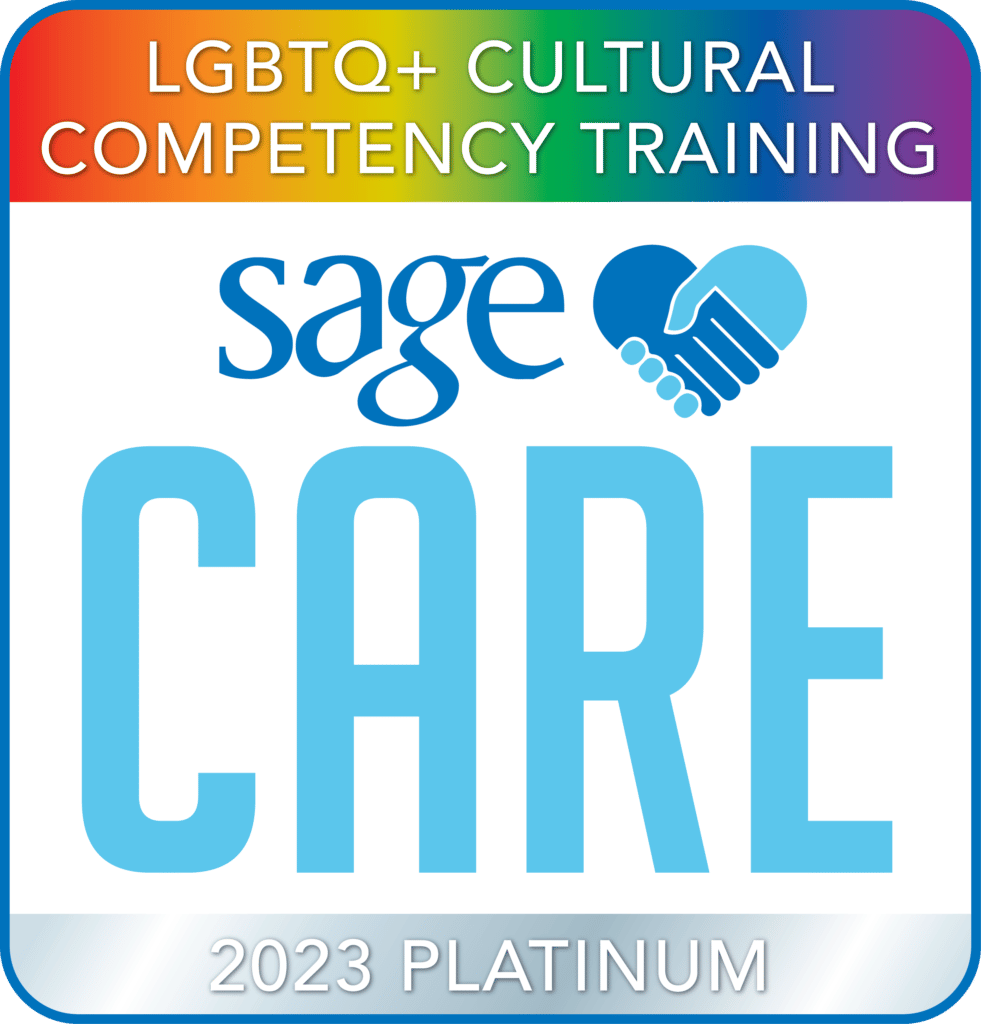Understanding and Coping with Different Dementia Behaviors

Oftentimes, seniors with dementia conditions may worry or frustrate those who care for them. Common dementia behaviors that can be difficult to cope with are becoming irrationally agitated, angry to the point of aggression, and confusing common names of objects and places. If you are a caregiver to a loved one with dementia, know that you are not alone and this journey is not an easy one. Fortunately, there are many resources and outlets for dementia caregiver support. If you are having trouble understanding or coping with your loved one’s dementia behaviors, our memory care team in Collingswood NJ have compiled different ways to navigate them.
First, it helps to understand the root causes of certain behaviors – we’ll start with the most common ones: confusion, anger, and agitation. Have you ever heard of sundowning? For many people with dementia, there is a certain time each day when they experience a complete change of character. Feelings of confusion, anger, and agitation are heightened during this brief period. This is helpful for caregivers to know because once you can pinpoint your loved one’s sundowning schedule, you’ll be more prepared to deal with its repercussions. If you’re struggling with your loved one’s sundown syndrome, we’ve provided tips below to manage their confusion, anger, and agitation.
Tips to Manage Loved One’s Confusion
- Label drawers, cabinets, and other storage containers that are most commonly used. This is very useful if not being able to find something that triggers your loved one.
- Use to-do lists and set reminders on electronic devices to keep them on schedule every day.
- Ask yes or no questions and keep the dialogue short when they’re having a difficult time. Sometimes less is more, as more information could overload them and cause more confusion.
Tips to Manage Loved One’s Agitation
Diversion is key to making sure your family member’s agitation doesn’t escalate to anger and aggression. Easy ways to divert include:
- Keeping familiar objects nearby to redirect and comfort them, like a favorite picture of the family.
- Reminisce with a beloved, long-term memory, like when their first grandchild was born.
- Remind them that they are safe and at home, by leading them into a room they spend a lot of time in, like the bedroom or living room.
Tips to Manage Loved One’s Anger
When your loved one is past the point of agitation and their emotions have progressed into anger, it’s important to keep them calm in order to avoid more aggressive outbursts. If the tips above don’t work to manage their anger, there may be an underlying issue that they can’t properly communicate. Common questions to consider:
- Are there issues with their medications? Have they recently changed medications or upped a dose of a certain medication? This could have an adverse effect and increase their aggressive behavior.
- Are all of their personal needs met? Frustration easily builds to anger when a loved one with dementia can’t communicate that they are hungry, thirsty, or need to go to the bathroom. Be mindful of their schedule and meet their needs to avoid aggression.
- Are they in pain? Pay attention to when your loved one becomes aggressive – is it during a certain task like bath time? Maybe they are experiencing pain getting into the tub and respond by lashing out instead of telling you what’s wrong. Is it during a certain time of day, when a medication may have worn off? Perhaps they can take their pill a bit earlier to relieve the discomfort.
Memory care for seniors and support for caregivers in Camden County NJ
Coping with your loved one’s dementia behaviors is a hard task and one that shouldn’t be handled alone. One of the best ways your loved ones can manage their confusion, agitation, and anger while maximizing their cognitive abilities is through professional memory care at a reputable senior community. At UMC at Collingswood, we have memory care specialists on site 24 hours a day, 7 days a week to provide support for dementia residents. Collingswood’s Tapestries program emphasizes diffusing negative dementia behaviors and engaging residents in exercises to strengthen the cognitive function and enhance the quality of life. Our specialists are also available to answer any questions you or your family may have and to ease any stress about your loved one’s transition into the Tapestries memory care neighborhood.
If your loved one is showing early signs of dementia, please call 856-369-3092 to find out how we can successfully meet their needs and support your caregiving journey. To learn more about Tapestries memory care in Camden County, please contact United Methodist Communities at Collingswood or visit our website at: https://umcommunities.org/collingswood/




